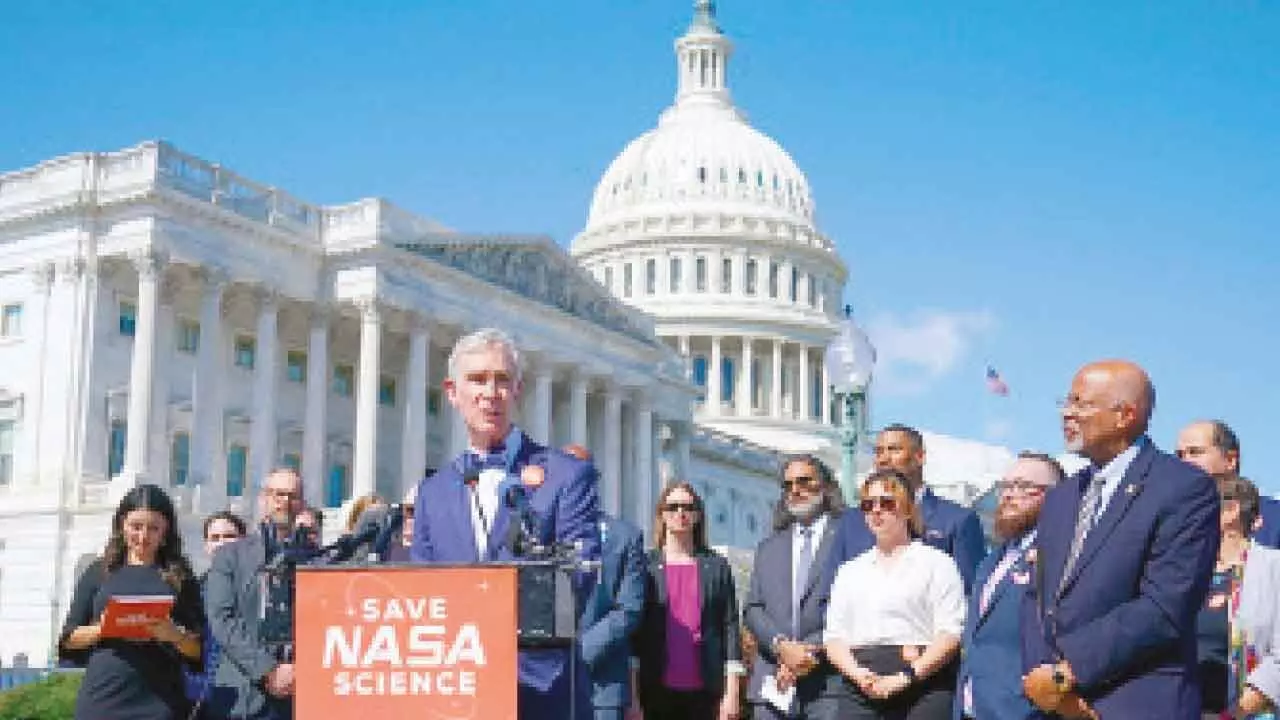All govt shutdowns disrupt science, consequences extend far beyond lapse in funding
All govt shutdowns disrupt science, consequences extend far beyond lapse in funding

With scientists and program officers at home, activities at the nearly two dozen federal agencies participating in research and development, such as the National Science Foundation and the National Institutes of Health, come to a halt
US science always suffers during government shutdowns. Funding lapses send government scientists home without pay. Federal agencies suspend new grant opportunities, place expert review panels on hold, and stop collecting and analysing critical public datasets that tell us about the economy, the environment and public health. In 2025, the stakes are higher than in past shutdowns.
This shutdown arrives at a time of massive upheaval to American science and innovation, driven by President Donald Trump's ongoing attempts to extend executive power and assert political control of scientific institutions.
With the shutdown entering its fifth week, and with no end in sight, the Trump administration's rapid and contentious changes to federal research policy are rewriting the social contract between the US government and research universities, where the government provides funding and autonomy in exchange for the promise of downstream public benefits.
As a physicist and policy scholar, I both study and have a vested interest in the state of US science funding as a recipient of federal grants. I write about the history and governance of American science policy, including the nation's investments in research and development.
In the context of broader policy reforms to federal grantmaking, student and high-skilled immigration, and scientific integrity, this shutdown has both known and unknown consequences for the future of US science.
Funding freezes, data gaps and unpaid workers
Over the past two decades, the story of government shutdowns has become all too familiar. Shutdowns occur when Congress fails to pass an appropriations bill before the start of the new fiscal year on Oct. 1, and, paraphrasing Article 1, Section 9 of the US Constitution, the government can no longer spend money.
This funding gap affects all but essential government operations, such as the work of postal workers, air traffic controllers and satellite operators.
Nonessential employees, including tens of thousands of government scientists, are barred from working and stop receiving paychecks.
With scientists and program officers at home, activities at the nearly two dozen federal agencies participating in research and development, such as the National Science Foundation and the National Institutes of Health, come to a halt.
New grant opportunities and review panels are postponed or cancelled, researchers at government laboratories stop collecting and analysing data, and university projects reliant on federal funding are put at risk. Extended shutdowns accelerate the damage.
They leave bigger gaps in government data, throw federal employees into debt or lead them to dip into their savings, and force academic institutions to lay off staff paid through government grants and contracts.
Funding, public services and the rule of law
Even for shutdowns lasting a few days, it can take science agencies months to catch up on the backlog of paperwork, paychecks and peer review panels before they return to regular operations.
This year, the government faces mounting challenges to overcome once the shutdown ends: Trump and the director of the White House budget office, Russell Vought, are using the shutdown as an opportunity to “shutter the bureaucracy” and pressure universities to bend to the administration's ideological positions on topics such as campus speech, gender identity and admission standards.
As the budget standoff nears the record for the longest shutdown ever, agency furloughs, reductions in force, cancelled grants, and jeopardised infrastructure projects document the devastating and immediate damage to the government's ability to serve the public.
However, the full impact of the shutdown and the Trump administration's broader assaults on science on US international competitiveness, economic security and electoral politics could take years to materialise.
In parallel, the dramatic drop in international student enrollment, the financial squeeze facing research institutions, and research security measures to curb foreign interference spell an uncertain future for American higher education.
(Author is from Rice University)

